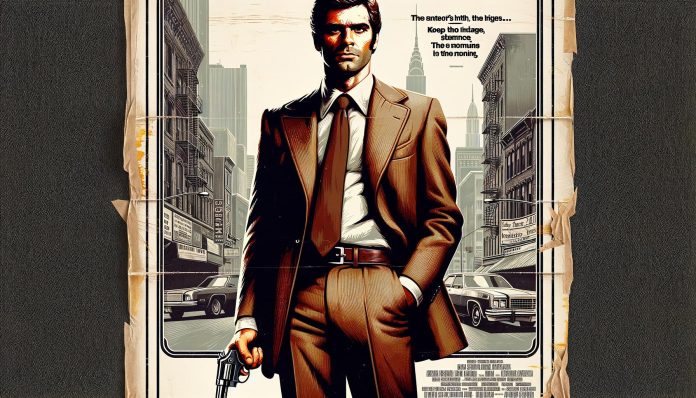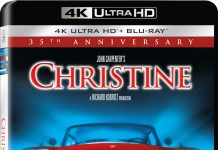As a fan of classic cinema, I have always been fascinated by the evolution of the action genre, particularly the Dirty Harry series. This iconic franchise, featuring Clint Eastwood as the tough-as-nails San Francisco cop Harry Callahan, has left an indelible mark on film history. With its blend of gritty storytelling, moral dilemmas, and unforgettable one-liners, the series raises compelling questions about justice, law enforcement, and the human condition.
The Birth of a Legend: Dirty Harry (1971)
The original Dirty Harry, released in 1971, introduced audiences to Inspector Harry Callahan, portrayed masterfully by Clint Eastwood. The film opens with a chilling premise: a serial killer known as Scorpio, played by Andrew Robinson, terrorizes San Francisco. Callahan, known for his unorthodox methods and his famous .44 Magnum, becomes embroiled in a battle of wits with the sadistic killer.
Themes of Justice and Morality
What struck me about Dirty Harry is its exploration of justice. Callahan is a complex character; he operates outside the confines of the law, believing that the system often fails to deliver true justice. The film raises questions about the morality of vigilantism and the consequences of taking the law into one’s own hands. This theme resonates strongly, especially in today’s society, where issues of crime and punishment remain contentious.
Cultural Impact
Dirty Harry became a cultural phenomenon, influencing countless films and television shows. The film’s tagline, “Do you feel lucky, punk?” has since become synonymous with Eastwood’s tough-guy persona. The combination of Eastwood’s performance, the film’s gritty aesthetic, and its provocative themes set the stage for the subsequent entries in the series.
The Return of the Icon: Magnum Force (1973)
Three years later, Magnum Force hit theaters, showcasing a new chapter in Harry Callahan’s story. This sequel follows Callahan as he investigates a group of vigilante cops who are taking the law into their own hands, executing criminals who have evaded justice.
A Shift in Perspective
In Magnum Force, I noticed a shift in perspective regarding morality. The film presents the idea that the system can sometimes fail, leading individuals to take extreme measures. However, it also highlights the dangers of unchecked power, as the vigilante cops spiral into a cycle of violence that threatens the very fabric of law enforcement.
Character Development
The character of Harry Callahan continues to evolve in this sequel. While he remains a staunch advocate for justice, we witness glimpses of his internal struggle with the moral implications of his actions. This complexity makes him a compelling anti-hero, and Eastwood’s performance is nothing short of captivating.
The Darker Side: The Enforcer (1976)
The Enforcer marked the third installment in the series, and it took a darker turn. This time, Callahan is paired with a new partner, a female officer named Kate Moore, played by Tyne Daly. The film tackles issues of sexism within the police force while maintaining the series’ signature action-packed style.
Gender Dynamics
In The Enforcer, I was intrigued by the portrayal of Kate Moore as a competent and strong-willed officer. The film confronts the gender dynamics of the 1970s, showcasing Moore’s struggles to prove herself in a male-dominated environment. This addition to the franchise adds a layer of complexity to Callahan’s character, as he learns to collaborate with someone who challenges his traditional views.
Action and Social Commentary
While The Enforcer delivers thrilling action sequences, it also serves as a commentary on societal issues, including the fight against organized crime. Callahan’s relentless pursuit of justice remains at the forefront, but the film’s exploration of teamwork and partnership adds depth to the narrative.
A Changing Landscape: Sudden Impact (1983)
After a seven-year hiatus, Harry Callahan returned in Sudden Impact. This film introduced a more personal storyline, as Callahan investigates a series of murders linked to a woman named Jennifer Spencer, played by Sondra Locke. The plot delves into themes of revenge and trauma, making it one of the series’ most emotionally charged entries.
The Power of Revenge
In Sudden Impact, I found the exploration of revenge to be particularly compelling. Jennifer Spencer’s quest for vengeance against her rapists raises profound questions about justice and the emotional toll of trauma. The film’s tagline, “Make my day,” has become iconic, encapsulating the film’s intense atmosphere and Callahan’s unyielding resolve.
Evolution of Callahan
In this installment, Callahan is depicted as more vulnerable, grappling with the consequences of his choices. This evolution adds depth to his character, showcasing the toll that a life of violence and vigilantism can take on an individual.
The Final Chapter: The Dead Pool (1988)
The Dead Pool serves as the final film in the “Dirty Harry” series. In this installment, Callahan finds himself embroiled in a deadly game involving a list of celebrities marked for death. The film combines action with a satirical take on Hollywood and media sensationalism.
A Reflection on Celebrity Culture
I appreciated how The Dead Pool critiques celebrity culture and the media’s obsession with sensationalism. The film’s plot serves as a commentary on the impact of fame and the lengths to which individuals will go for notoriety. This theme resonates today, as we continue to grapple with the consequences of our fascination with celebrity.
Conclusion of an Era
As the last film in the series, The Dead Pool wraps up Harry Callahan’s journey. While it may not have the same cultural impact as its predecessors, it still provides an entertaining and thought-provoking conclusion to the saga.
Legacy of the Dirty Harry Series
The Dirty Harry series has left an enduring legacy in the realm of film and pop culture. It has influenced countless filmmakers and actors, establishing archetypes that continue to be emulated in contemporary cinema. The character of Harry Callahan has become synonymous with the anti-hero trope, paving the way for future protagonists who operate outside the boundaries of the law.
Impact on Action Cinema
The franchise’s impact on the action genre cannot be overstated. The blend of gritty realism, moral ambiguity, and unforgettable catchphrases has set a standard for action films that followed. From the rise of vigilante justice narratives to the portrayal of complex law enforcement characters, the Dirty Harry series remains a touchstone for filmmakers.
Societal Reflections
Beyond its cinematic achievements, the series reflects societal attitudes towards crime and justice. The moral dilemmas presented in each film continue to resonate in discussions about law enforcement, vigilantism, and the balance between justice and morality. As we navigate an increasingly complex world, the questions raised by Harry Callahan’s character remain relevant.
Conclusion
In conclusion, the Dirty Harry series is a remarkable exploration of justice, morality, and the human condition. Clint Eastwood’s portrayal of Harry Callahan has become a cultural touchstone, and the films continue to provoke thought and discussion. As I reflected on each installment, I was struck by the complexity of the characters and the themes presented.
For anyone interested in action cinema, the Dirty Harry series is an essential viewing experience. It challenges us to confront our beliefs about justice and morality while delivering thrilling entertainment. Whether you’re a longtime fan or a newcomer, I encourage you to revisit these films and consider their lasting impact on both cinema and society.
<iframe width="560" height="315" src="https://www.youtube.com/embed/YgRjIEwMYQ4?si=8cnZesSLj2IMNllS" title="YouTube video player" frameborder="0" allow="accelerometer; autoplay; clipboard-write; encrypted-media; gyroscope; picture-in-picture; web-share" referrerpolicy="strict-origin-when-cross-origin" allowfullscreen></iframe>




.jpg?w=100&resize=100,70&ssl=1)
